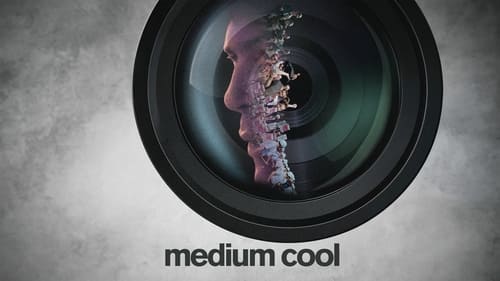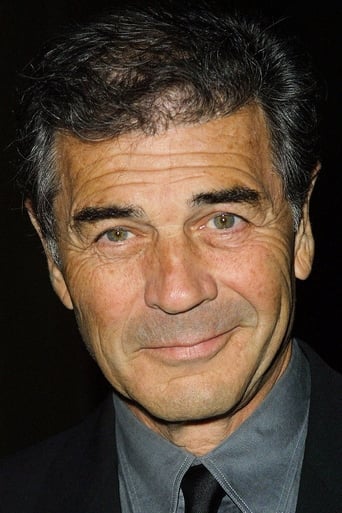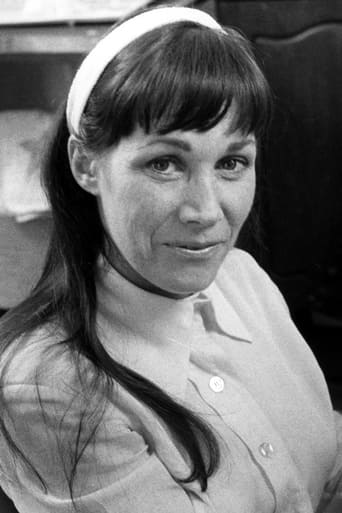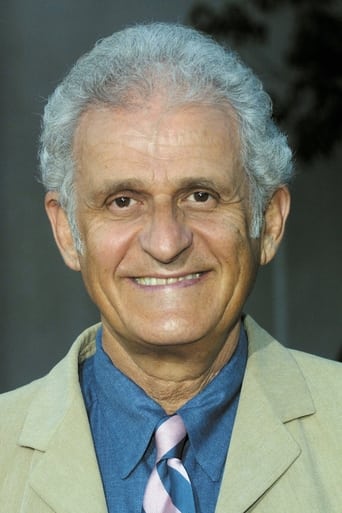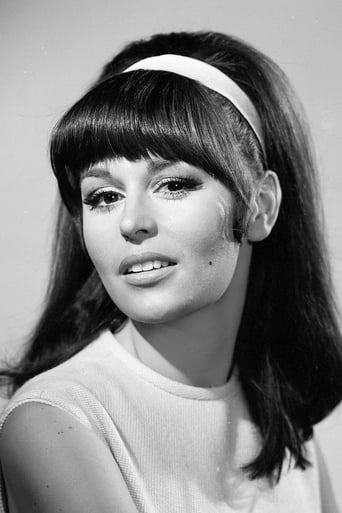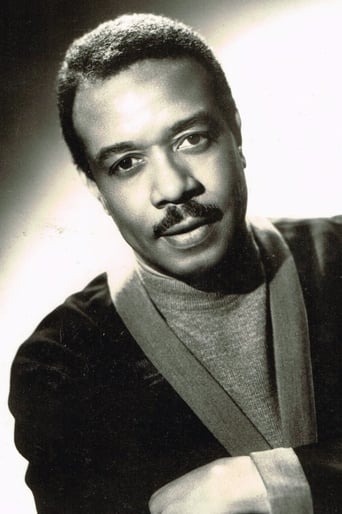ManiakJiggy
This is How Movies Should Be Made
Curapedi
I cannot think of one single thing that I would change about this film. The acting is incomparable, the directing deft, and the writing poignantly brilliant.
Neive Bellamy
Excellent and certainly provocative... If nothing else, the film is a real conversation starter.
Orla Zuniga
It is interesting even when nothing much happens, which is for most of its 3-hour running time. Read full review
kapelusznik18
(Some Spoilers) Straight out of the newspaper headlines from the turbulent 1968 Chicago Democratic Convention that changed the course of politics in America "Medium Cool" has become one of the most influential films to come out of the 1960's that still, some 50 years later, reverberates with audiences today. It's at first a simple story of a news photographer John Cassellis, Robert Forster, who gets caught up with the events that sweep the country while doing his job covering a human interest story about a Chicago cab driver returning $10,000.00- something like over $100,000.00 in 2016 currency-that he found in the back seat of his taxi.The black cab driver instead of being being treated as a Good Sumerian is given the third degree by the police as if he's a criminal or drug dealer that greatly disturbs John who's in the police station covering the story. John himself soon is confronted by the taxi driver's relatives who enlighten him in how things are done to those in the ghetto by those in authority that in fact leads to the violence that he's later to encounter-In a full scale police riot- in the movie! Ther's also Eileen,Verna Bloom, a single mother who's husband is reported missing in Vietnam who's son Harold, Harold Blankenship, has become uncontrollable in not having a father in the home and was caught breaking into John's car in a Chicago parking lot. John who has a totally nude hop in and out of the sack with reporter Ruth, Marianna Hill, earlier in the movie-That at first gave the film a X-rating-has now become very serious with Eileen and tries to help her and her son out. But things soon get out of hand with the city of Chicago about to explode and him as well as Eileen being right in the middle of it with riots breaking out all over the city as the Democratic National Convention gets into full swing! Using actual footage of the Chicago anti Vietnam riots during the Democratic Convention as they were happening the movie has a very documentary tone to it with both Robert Forster and Vera Bloom just going with the flow of the action with out any script or direction from the film makers to follow. Looking for Harold who got lost in all the actions the two end up in a fatal car crash looking for him by the time the film ended. With Harold safe and sound but both homeless as well as orphaned in the process. A "Citizen Kane" like film "Medium Cool" gets better with every showing and has since inspired many like wise movies in the future that as good as they were or are could never duplicate it.
jakob13
The Criterion Collection has brought out a remastered, stunning 'Medium Cool'. America's answer to 'Cinema Verite'. Haskell Wexler's film could have been made yesterday, given the conditions in the US today. Although the technology of filming has changed drastically. In fact, given the success of 'Tangerine', it is easy to envision 'Medium Cool' shot exclusively on a Smartphone. Gone are the 40 pound cameras, the heavy television cameras set up at conventions, the one way voice boxes and the like. As Marshall McCluhan, the high priest and theorist of communication, posited: 'the medium is the message'. And Wexler took this guru's words to heart. We're in Chicago on the eve and during the infamous 1968 Democratic Convention. The story is half fiction half cinema truth, of a fun loving news photographer whose passion is the story and getting it right. Through his camera, we travel through the racial, economic and political stress and high drama of the times. (For good reporting, see Norman Mailer's 'Miami and the Siege of Chicago'). The 'hero' John Cassellis is shocked that his footage has been handed over by his employer to the FBI. So what else is new today? In scenes with blacks militants he is accused of being an undercover FBI agent, and they knew what they were talking about, for until then he was clueless. The world of the poor whites from the coal mines of West Virginia, the banter in the newsroom about the role of journalism. The spirit of the turbulent 60s has run out of steam but in some eddies here and there of on the fringe reporters, social media and streamed dailies or weeklies. And yet, documentaries are making a comeback, and showing the grim side of life and some moments of good works. Episodic as the film is, it is worth seeing, to see how everything old is new again
moonspinner55
Still-relevant and thought-provoking essay on violence--and the voyeurism of violence via television--in America circa 1968. Docudrama-styled film centers on a TV-news cameraman in Chicago (Robert Forster, lean and mean while resembling a young Charles Bronson) and his love/hate relationship with his work, which is constantly being undermined by bureaucratic decision-making from network suits who aren't on the front-lines. Cinematographer Haskell Wexler also produced, directed, and wrote this microcosm of race relations (and its mind-boggling double-talk), youthful protesters of government, and clashes between civilians and the armed forces--all occurring during the 1968 Democratic convention rallies. Despite a tough, cynical veneer, a trace of bitter-tinged humor manages to come through in Wexler's conception, though the picture runs too long and is saddled with a bummer climax determined to make a statement. Forster is charming in a moodily low key, yet his budding romantic relationship with an abandoned mother of one is left a bit unformed. Real convention footage is integrated smoothly within the fictionalized drama, though these overtures (used for atmosphere) do call attention to themselves, as do a few stray acting moments from amateurs behaving too 'naturally'. However, this heatedly emotional and viscerally-charged film is still quite potent and arresting on many levels. **1/2 from ****
jonathan-577
A rare directorial outing by all-time great cinematographer Wexler, this is generally acknowledged as the most politically radical film ever produced by a major studio. In freewheeling, semi-improvised, ideologically calculated scene after scene, it depicts an apolitical television cameraman's awakening of consciousness and abandonment of the role of passive observer. The class and race politics are four notches up on any comparable contemporary studio feature, that's for sure - with the surprisingly patient explanation of how 6-o-clock-news ideology oppresses minority communities, leading in to a love affair with a working-class single mother instead of some vanguard hippie, you could even argue that this Americanization of Godard has better ideological legs than the master himself. Sure it meanders a tad, and the stylistics can date, but there's nothing else in any movie ever that compares with the climax, as the actors make their way through actual documentary footage of the 1968 Democratic convention and attendant street battles. I mean, how did such a finely balanced mix of integrated narrative, Euro-tics, American underground film and straight-up documentary even occur to them? And how did they then manage to actually pull it off with honors? Pretty damned impressive.




